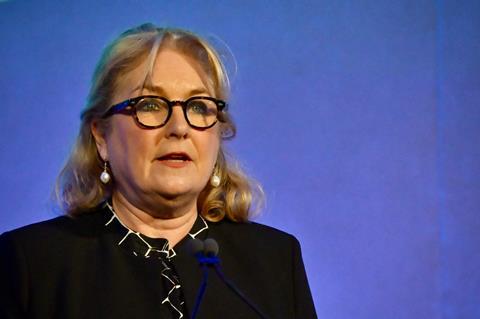England and Wales will not be signing up to a new wellbeing declaration created to support judges worldwide, the lady chief justice has revealed.
The Nauru Declaration on Judicial Wellbeing was officially adopted at a conference last July. It is principally the brainchild of Justice Rangajeeva Wimalasena, president of the Court of Appeal in Nauru. He has said one his inspirations was Her Honour Judge Kalyani Kaul KC, a circuit judge in England and Wales. Kaul, who took the Ministry of Justice, lord chancellor and lord chief justice to court over the handling of grievances she lodged against senior judges and court staff, is the founder of the Judicial Support Network, an independent support organisation for judges in England and Wales. She is also acting chair of the global support network.
Members of the draft committee for the declaration included the president of the Court of Appeal in Portugal, chief justices of the Solomon Islands, Papua New Guinea, Kiribati and Jamaica, president of the Caribbean Court of Justice, and judges from England and Wales, Canada, Tuvalu, Nigeria, Ukraine and Singapore.

Read more
The Nauru Declaration is not legally binding and countries can adopt or tailor it according to their needs.
Asked at her annual press conference this week by freelance journalist Catherine Baksi if the UK is formally backing the declaration, the lady chief justice said that the UK will not be formally backing it.
The declaration’s priorities and objectives ‘chime exactly’ with the work being done by the judiciary of England and Wales on wellbeing and support, Baroness Carr of Walton-on-the-Hill said.
‘I mean, there are a couple of things to say. First of all, being a judge, particularly at the moment, is a stressful job, and there is no avoiding that. It's difficult, and it's stressful. The law can be difficult, and the subject matter can be sensitive and distressing, but we are, I think, working really hard at a new well-being strategy. We have a lot of support available for judges, not just critical incident support, but also helplines. We have nominated welfare judges. We have judicial associations. So it is really important,’ Carr added.
‘[One] of the concerns I actually have in the wellbeing and diversity and inclusion field is that we don't spread ourselves too thinly, that we focus on what we're doing, that we have streamlined, effective arrangements that will enhance our prospects of the maximum delivery. So, focusing on what we're doing now, I think, is really important.’
In the 2022 UK Judicial Attitude Survey, one in 10 judges reported bullying. The judiciary published a ‘statement of expected behaviour’ after research found allegations of bullying, harassment and discrimination. The findings of the 2024 UK Judicial Attitude Survey are due to be published shortly.



























No comments yet